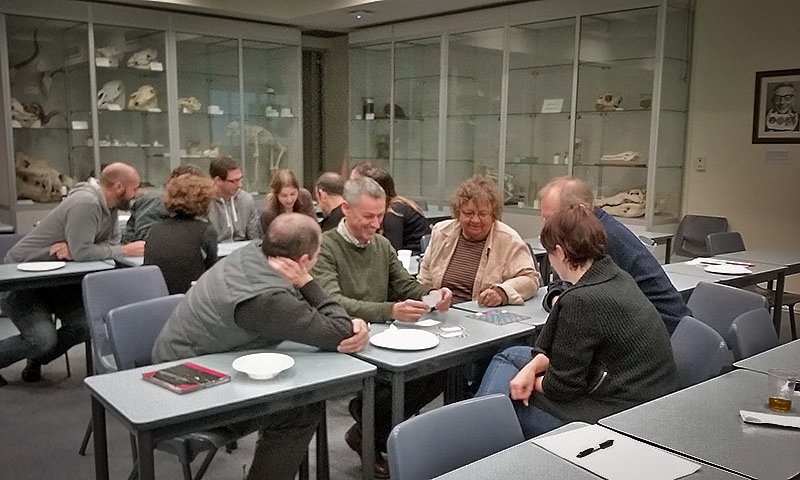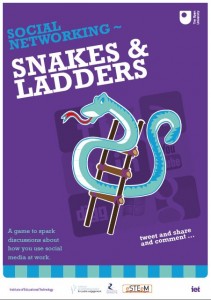The Snakes and Ladders of Social Media World Tour…
In Australia as elsewhere, researchers are increasingly facing demands to open up and discuss their research in the public sphere. The issue of ‘research with impact’ is also live here – the new National Research and Innovation Agenda includes planning for a pilot impact assessment exercise in 2017.
As Rick has discussed in other posts, digital and social media offer a space where these two claims can be met. But reaching a point where engagement is an integrated, valued and logical component of a research project can be a complex process in which we need to resolve multiple claims on our time.
In a recent paper (Grand et al., 2015), we discussed how researchers conceptualise engagement. These concepts can be very personal but knowing where we are starting from is an important point in understanding where we intend to go (Grand et al., 2016). But here at UWA, I am a lecturer in science communication, not engaged research. Better people than I have argued for drawing a broad boundary around ‘science communication’ but I have found myself needing to reassess the relationship that I perceive between science communication and engagement with science.
These were the issues that I used as a starting point for this first seminar with my new colleagues: what we understand by ‘engagement’ and ‘impact’ and how digital engagement can enable us to develop new skills and competencies. But the digital realm is still a place where many fear to tread and where we can easily be unaware of the skills and experiences of our colleagues. So naturally, I invited the participants to play a short game of snakes and ladders, which quickly became noisy and difficult to stop!
I had wondered what kind of questions would come out from the seminar, as in previous experiences, different groups invariably focus on different issues. Some think about how, some think about why, some think about what. Here, there was some discussion about control – about what happens when things go wrong, and about finding and targeting the appropriate audience. Most interestingly for me, we talked about whether there is evidence that engaged research is better research, something that – I hope – is building.
Reference
Grand, A., Holliman, R., Adams, A. and Collins, T. (2016). “We muddle our way through”: shared and distributed expertise in digital engagement with research. JCOM 15(04), A05, pp. 1-23. Available from: http://oro.open.ac.uk/46686
Grand, A., Davies, G., Holliman, R. and Adams, A. (2015). Mapping public engagement with research in a UK university. PLOS ONE, 10(4) pp. 1–19. Available from: http://oro.open.ac.uk/43126
Acknowledgements
This post discusses research and interventions developed through the Open University, UK’s RCUK-funded Public Engagement with Research Catalyst, ‘An open research university‘.



